In a huge win for the French defense industrial base, Dassault Aviation has emerged as the lowest bidder for a $10 billion contract to supply India with 126 of its Rafale fighter jets. If finalized, the deal for medium multi-role combat aircraft would be the first overseas order for the Rafale.* It would also represent a major loss for the rival bidder, the Eurofighter Typhoon, backed by the four-nation consortium of Britain, Germany, Spain and Italy. “Fighter jets are among the most expensive investment any country can make at the moment, and hence, because selling these is an expensive issue, […]
India Archive
Free Newsletter
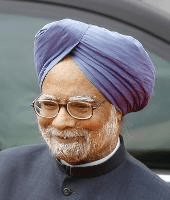
Indian External Affairs Minister S. M. Krishna’s visit to Israel earlier this month produced a number of significant outcomes, notably proposals for the opening of a new Israeli consulate in Bangalore and a bilateral free trade agreement, as well as Israeli support for a permanent Indian seat on the U.N. Security Council. More importantly, the trip highlighted the degree to which solidifying relations with Israel, and in particular maintaining robust defense ties, has become a bipartisan foreign policy consensus in India. India recognized the Jewish state in 1950 but eschewed the establishment of full diplomatic relations during the Cold War, […]
Earlier this month, India approved a $1.18 billion deal for the purchase of 500 Mica air-to-air missiles from the French defense firm MBDA. In an email interview, Jean-Luc Racine, a senior CNRS fellow at the Center for South Asia Studies at the School for Advanced Studies in Social Sciences and the vice president of the Asia Center in Paris, discussed France-India relations. WPR: What have been the Sarkozy administration’s main priorities in advancing France-India ties? Jean-Luc Racine: Since then-President Jacques Chirac’s visit to India in 1998, France-India ties have improved consistently, and current President Nicolas Sarkozy has clearly toed the […]
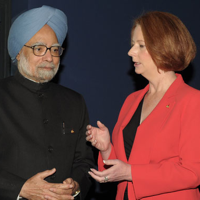
In supporting her proposal to reverse the Australian ban on uranium exports to India at the Australian Labour Party’s conference in early December, Prime Minister Julia Gillard argued that, “We should take a decision that is in our nation’s interest, a decision about strengthening our strategic partnership with India in this, the Asian century.” The proposal, which was successfully passed at the conference, comes at a time when U.S. President Barack Obama is orchestrating Washington’s strategic pivot to Asia and signals that further space is being negotiated for India in the existing regional order. Washington seems to be using its […]
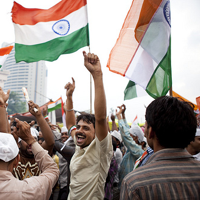
From the start of 2011 to the year’s end, corruption dominated India’s headlines and enflamed public opinion like no other issue. Three developments in particular brought corruption to the fore. First, in late-2010, the office of India’s comptroller and auditor general released a report stating that the Indian exchequer had lost more than $20 billion in revenue in the auction process allocating 2G telecommunications airwaves. Second, a 70-year-old Gandhi-esque figure led an anti-corruption movement that captured the nation’s attention and garnered global coverage. Third, an increasing number of India’s powerful elite began calling the country’s most famous prison, Tihar jail, […]
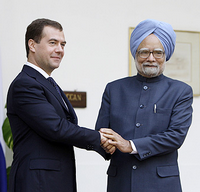
During the Cold War, the Soviet Union’s military-industrial complex sustained the massive Soviet military institution, which regularly gobbled up 15-25 percent of the nation’s GDP. In an odd and unexpected twist to the end of the Cold War, the Russian arms industry has turned to sustaining itself by arming a pair of Asian giants: Arms exports to China and India have proven lucrative for Russia — and have even had a synergistic and competitive quality. The unease each country has felt due to the other increasing its military capability has led to higher revenues for Rosoboronexport, the Russian state-owned arms […]
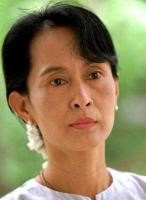
In 2011, Myanmar astonished the international community with a series of political openings that led even U.S. President Barack Obama to see “flickers of progress” in the country. The approval by the Association of Southeast Asian Nations (ASEAN) Summit last November of Myanmar’s bid to chair the regional bloc in 2014 and the historic visit of U.S. Secretary of State Hillary Clinton to the country seem to have launched a regional race for gaining a “special relationship” with the Myanmar authorities, themselves eager to attract new foreign investment. But it is doubtful that increased economic involvement with neighboring countries will […]
